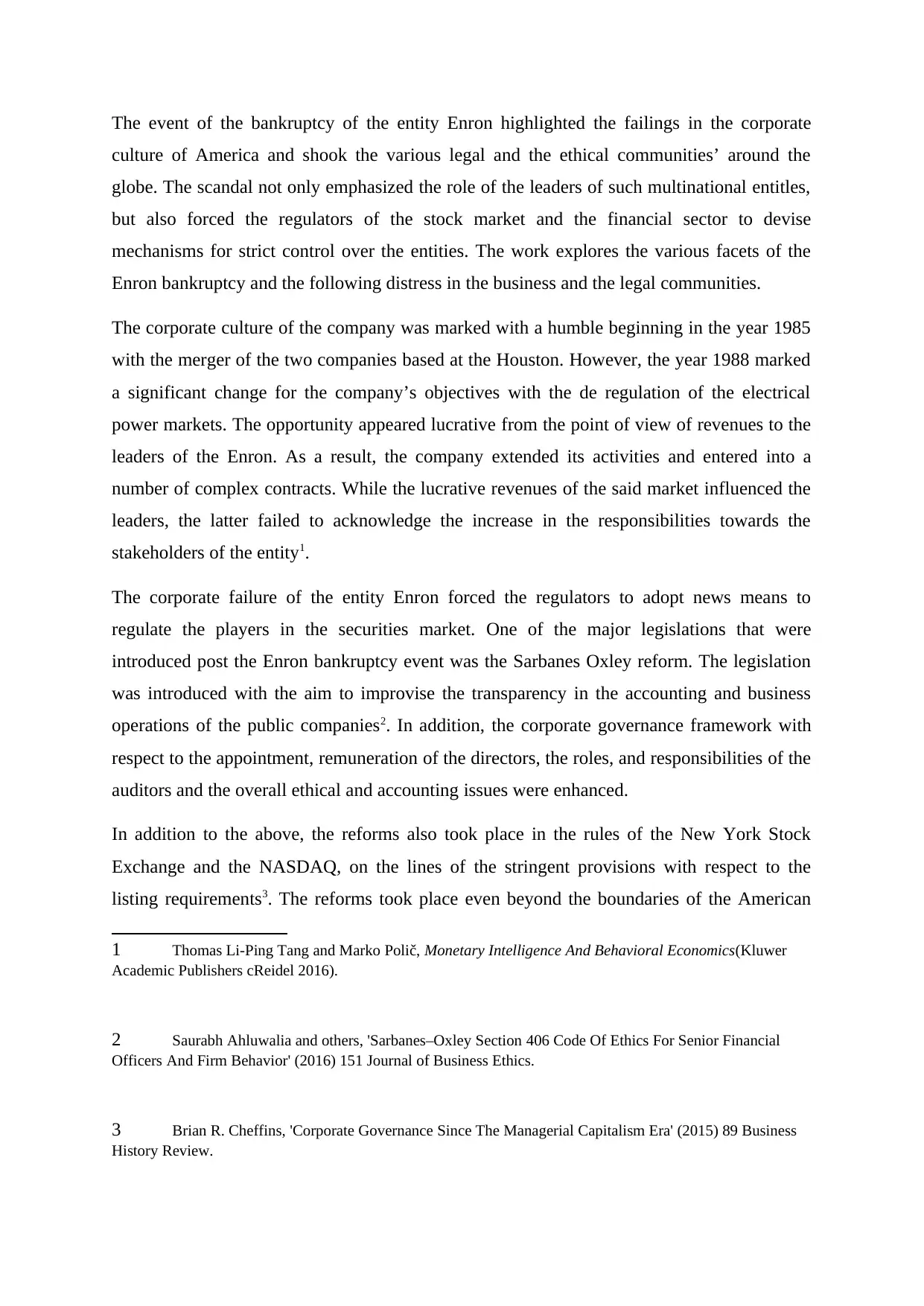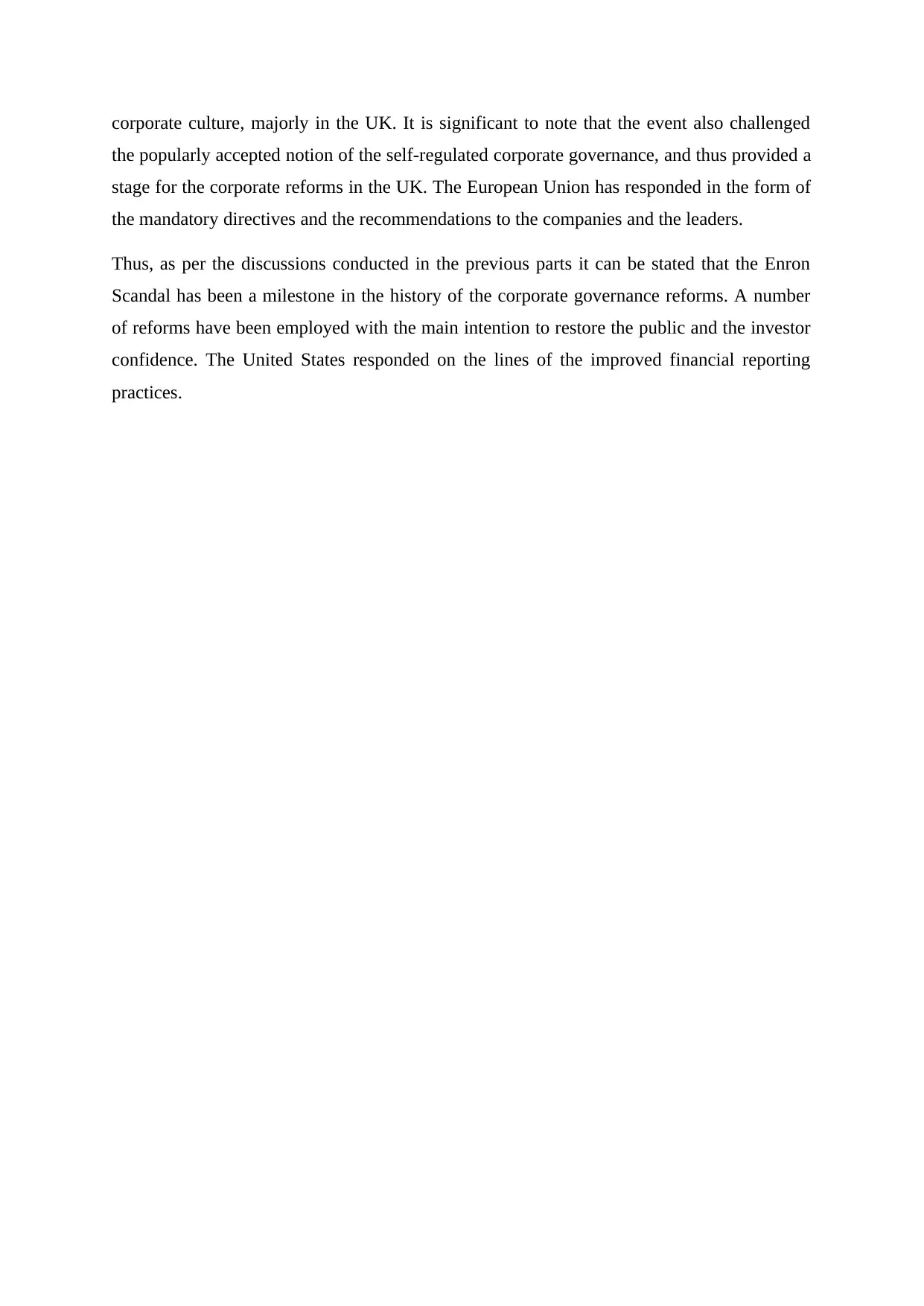The Enron Bankruptcy: A Deep Dive into Corporate Governance and Ethics
VerifiedAdded on 2023/05/30
|3
|622
|441
Report
AI Summary
This report delves into the Enron bankruptcy, a pivotal event that exposed significant failings in corporate culture and shook the business and legal communities globally. It examines the company's origins, the deregulation of power markets, and the subsequent expansion that led to complex contracts and a disregard for stakeholder responsibilities. The report highlights the regulatory responses, including the Sarbanes-Oxley Act, and the reforms in corporate governance, accounting transparency, and listing requirements in the US and the UK. Furthermore, it emphasizes the scandal's impact on the concept of self-regulated corporate governance, paving the way for reforms in the EU. The analysis underscores the Enron scandal as a milestone in corporate governance reforms, aimed at restoring public and investor confidence through improved financial reporting practices. The report concludes with a review of the bibliography used in the analysis.
1 out of 3










![[object Object]](/_next/static/media/star-bottom.7253800d.svg)